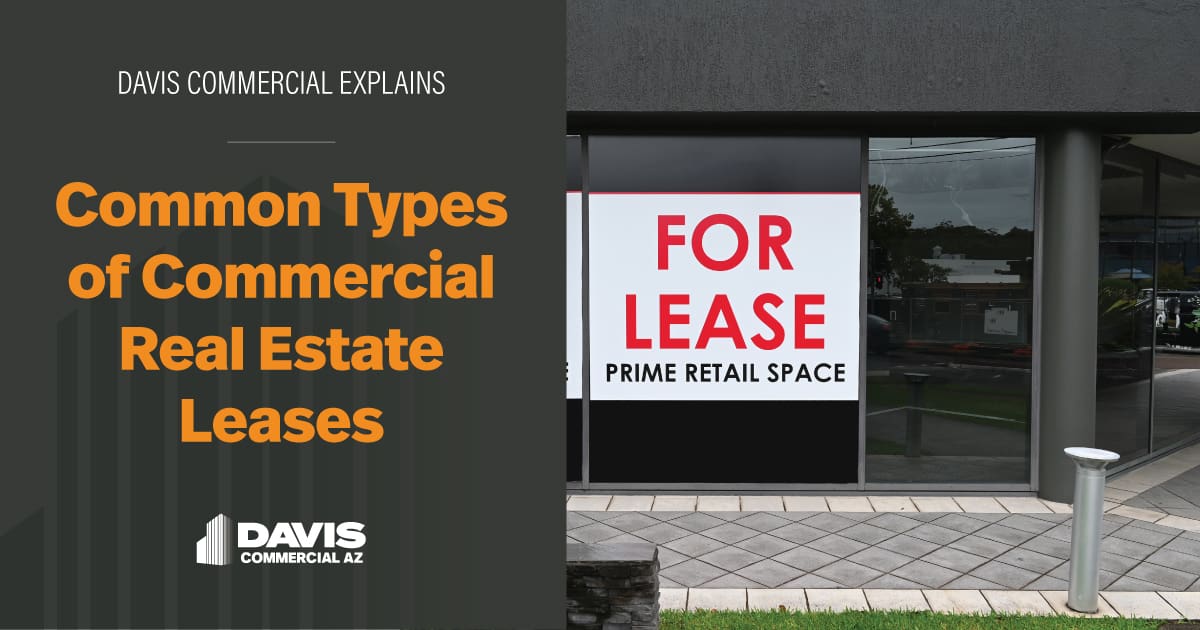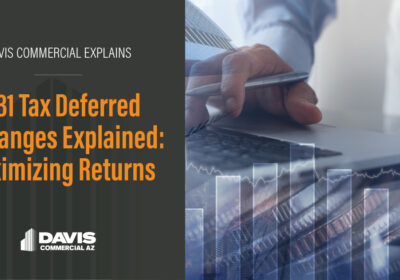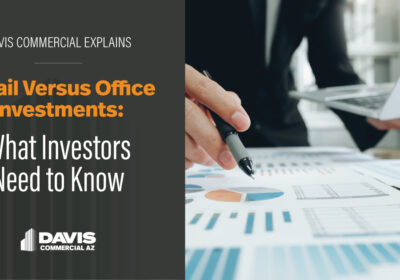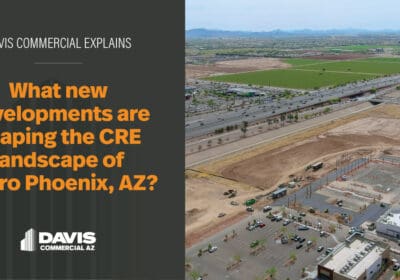Common Types of Commercial Real Estate Leases

There are an endless variety of lease agreements in commercial real estate. To better understand the options, let’s dive in and review the most common commercial real estate leases, and then examine their differences.
Common commercial real estate leases
The most common commercial leases include: 1) a triple net lease (NNN); 2) a modified gross lease (MG); 3) a full-service gross lease (FSG). We’ll review each lease type, while breaking down who’s responsible for items such as property taxes, insurance and repairs. It’s critical to understand these components of a lease agreement as expenses are the main differentiator among commercial real estate leases.
The differences between common commercial real estate leases
The differentiation between lease types can typically be found in the terms and obligations for both the landlord and the tenant. Below we examine these differences between the most common types of commercial real estate leases previously identified.
-
Triple Net Lease (NNN)
In a triple net lease (NNN), the tenant has a high degree of control over the property, therefore, assuming much of the financial responsibility such as property taxes, insurance and maintenance costs, as well as the actual base rent. A triple net lease is commonly used for freestanding buildings, such as single-tenant retail, industrial, or office buildings. As the landlord is not responsible for any of the expenses associated with running the business on the property, the tenant accepts a lot of risk. However, a triple net lease (NNN) is somewhat thought of as a turnkey option. Although, there are often exceptions to the rule in a NNN lease. For example, if the building is brand new, the tenant of a triple net lease is typically responsible for renovations and repairs of big budget items like HVAC (as it wears over time). If we’re dealing with an older building, in this instance, the landlord might have to pay for the some or all HVAC repairs, even if it is a NNN lease. The only way fora tenant guarantee operations under a true triple net lease is to read the agreement in its full entirety and consult an attorney..
Landlord’s like NNN leases because the investment is “hands off”, they don’t have to worry about being called to fix a tenant’s building problem, and all the rent goes in their pocket.
-
Modified Gross Lease (MG)</h4
With a modified gross lease (MG) the tenant pays a base rent plus their own utilities and janitorial services. The base rent covers common area maintenance, property taxes and insurance. A modified gross lease (MG) is typically used for office spaces due to the common areas that tenants share such as lobby, restrooms, hallways, stairwells, and elevators.
Tenants prefer this arrangement because they can control their office temperature 24/7 since they are paying the utility bill directly. Also, if they choose to clean the suite themselves, they save money on janitorial costs rolled into a full-service gross lease.
-
Full-service Gross Lease
As the name suggests, a full-service gross lease includes all operating expenses, as well as maintenance, utilities and janitorial services. The tenant will pay a flat fee for these expenses in addition to their base rent, but this type of lease offers the least amount of financial responsibility for the tenant, and the most convenience. A full-service lease is commonly used for multi-tenant properties and medical offices.
Tenants like this arrangement because it is easy to budget for, one payment once a month for rent and they call a property manager to take care of any in-suite problems.
It is important for tenants and landlords to carefully review and understand the terms of any lease before signing, as the type of lease and its terms can significantly impact both parties’ financial responsibilities and obligations. It is not unheard of for a landlord to use terms such as triple net (NNN), modified gross (MG) or full-service gross lease (FSG) in the lease but the language might not reflect the terms and accuracy of the lease. Before entering a lease agreement consulting the expertise of a knowledgeable broker is highly recommended, whether you are the property owner/landlord or the prospective tenant to help ensure your interests are being considered.
As a tenant, don’t be caught off guard! when you are searching for a rental space for your business, make sure your tenant rep compares perspective property rental rates apples to apples. A triple net lease can add $10 per square foot to your monthly cost. This can be devastating if you don’t budget for the additional cost in advance.
It’s always best to work with a trusted CRE partner who knows the market, the building’s history and the landlord’s reputation. Knowledgeable advisors (both your tenant rep and attorney) help you understand the process and ascertains the fine print in the lease agreement.
Davis Commercial AZ has a team of experienced brokers that can help guide business owners in the decision-making process. With more than 20 years of industry experience, our team of experts can advocate on your behalf, ensuring you negotiate the best lease for your business. Get in contact here, we look forward to working together.
Related Posts

Why a Build-To-Suit May Be a Smart Choice for Businesses
Elevated interest rates, selective lending and mixed signals in national headlines have created confusion about…

1031 Tax Deferred Exchanges Explained: Maximizing Returns
As businesses grow and operations evolve, so do their property needs. The need for new…

Retail Versus Office Investments: What Investors Need to Know
Not all commercial real estate properties are created equal. Whether you’re eyeing a retail center…

What new developments are shaping the CRE landscape of Metro Phoenix, AZ?
Metro Phoenix consists of more than 20 municipalities and continues to rank among the fastest-growing…
